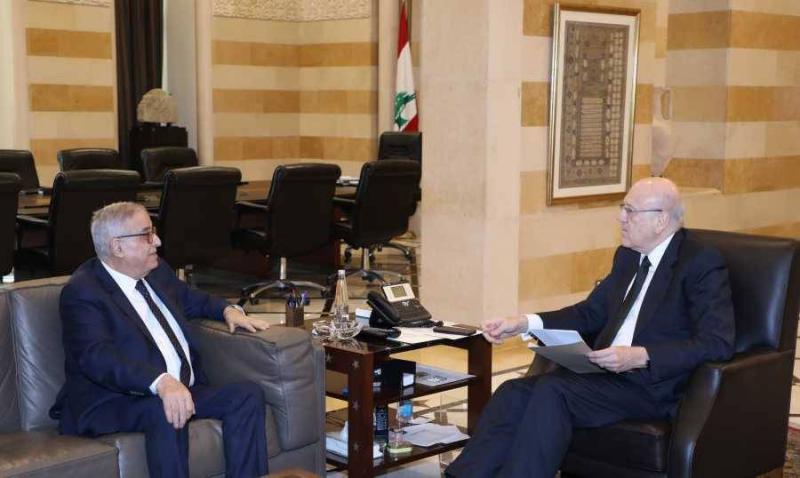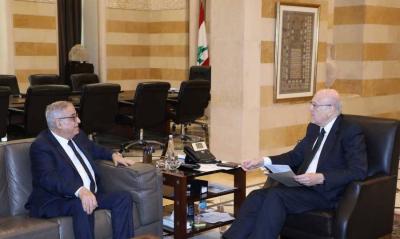Amid escalating tensions on the southern front yesterday, the Lebanese government postponed its response to the security arrangements paper between Lebanon and Israel brought by French Foreign Minister Stéphane Séjourne earlier this month to Beirut, requesting that it be converted into an official document. According to informed sources, the delay in the response came because the paper did not follow diplomatic protocols, as it lacked the emblem of the French Foreign Ministry or the French embassy in Beirut.
Foreign Minister Abdullah Bou-Habib announced yesterday, after meeting with Prime Minister Najib Mikati at the Grand Serail, that they discussed the response to the French proposal, and they are preparing the message they agreed upon and the points they will address, indicating that the response will reach the French next week. He noted that their position is known: they want a full and comprehensive implementation of Resolution 1701, including Shebaa and Kfar Shuba, affirming that they welcome the French role, and the French are concerned about Lebanon and its safety. However, sources told "al-Akhbar" that the Lebanese side understands that Paris is not in a position to play a constructive role since the French stance from the outset of Operation Flood of Al-Aqsa has been aligned with Israeli interests, to the point that the French paper seems as though it was drafted in Tel Aviv.
Additionally, all parties are convinced that Paris is unable to manage negotiations and reach agreements without Washington's involvement. There is also a belief among most officials that it is necessary to wait for the outcomes of the ongoing negotiations in Cairo and Doha regarding Gaza, and that if these lead to a temporary ceasefire, there is a significant possibility that U.S. envoy Amos Hochstein will visit the region and Lebanon with proposals to ease tensions in the south. It is noted that Lebanese official sources have heard that the U.S. envoy has a proposal that has not yet been revealed, awaiting the results of the negotiations. Therefore, it is better to wait for developments over the next two weeks, as if the U.S. envoy comes, discussions would be directly with the principal entity, considering that Washington is the party that will finalize any upcoming agreements. Furthermore, Hezbollah, according to "al-Akhbar," is the party most concerned with the paper and refuses any discussion about any measures before the cessation of aggression on Gaza, which means that the French proposal to de-escalate, suggesting a withdrawal of the party at least 10 kilometers north of the border, ceasefire, and the establishment of a committee to monitor the process and the army’s entry into the south, does not appear to have any place at present. Thus, there is no need for an official Lebanese response at this time either.




